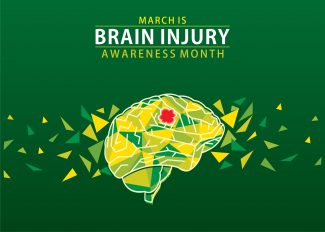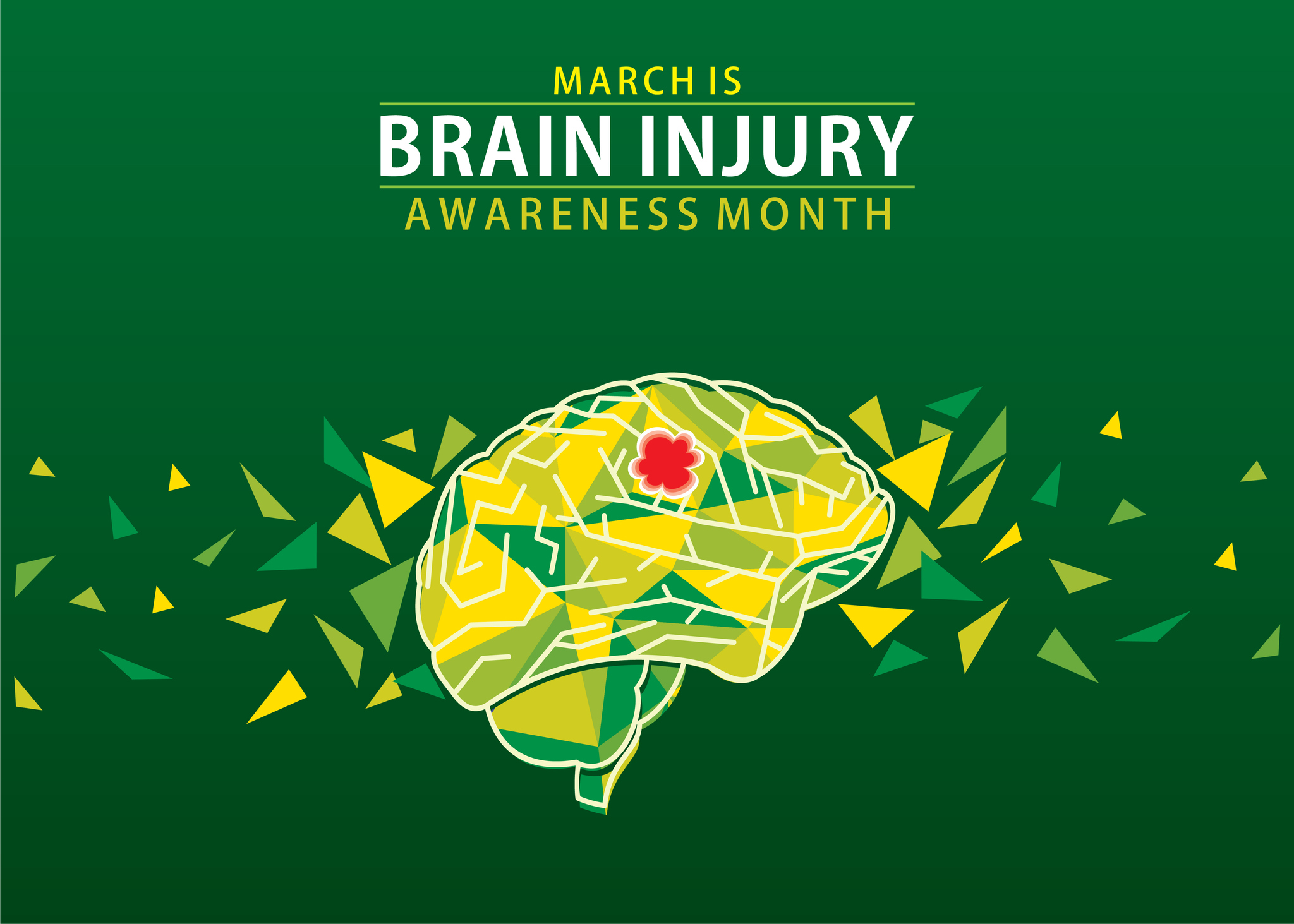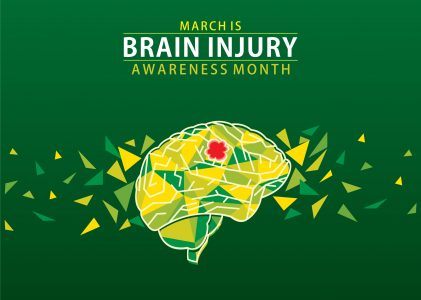
March is recognized as National Brain Injury Awareness Month, with the Brain Injury Association of America (BIAA) leading the march to bring attention to traumatic brain injuries (TBIs). The theme for 2021 to 2023 is “More Than My Brain Injury”, #MoreThanMyBrainInjury, to raise awareness of traumatic brain injuries and prevention strategies. National Brain Injury Awareness Month is also aimed to promote strategies that will improve the quality of life for people living with a TBI and give support for families.
Brain Injury Statistics in the United States
At least 2.8 million Americans each year will sustain a brain injury, which is one of the leading causes of disability and death in the United States. There are several different causes of a traumatic brain injury with nearly half of all TBIs caused from falls.
More than 5.3 million adults and children are living in the United States with a permanent disability related to a brain injury. That equals one out of every 60 Americans. If you are living with a brain injury or know someone who is, you are already aware that a traumatic brain injury is often a misdiagnosed, misunderstood, and underfunded neurological disease.
#MoreThanMyBrainInjury
The theme for National Brain Injury Awareness Month of 2021 is #MoreThanMyBrainInjury, a campaign designed to educate and help others understand what it is like for people to live with a brain injury. During brain injury awareness month it is a good time to remind people everywhere to join together in:
- Reducing the stigma that comes with having a brain injury
- Increasing an understanding that brain injury is a chronic condition
- Improving support for families and care for individuals living with a brain injury
- Educating on the diversity of brain injuries and demographics in the community
Different Types of Traumatic Brain Injuries
There are different types of injuries to the brain, with an acquired brain injury (ABI) occurring after birth. An ABI is an injury that is not congenital, not caused by birth trauma, is not hereditary or caused from degenerative conditions. There are two different types of ABIs, traumatic and nontraumatic brain injuries.
A traumatic brain injury, TBI, occurs when an external force or trauma alters brain function or brain pathology. A TBI can be either penetrating (open) or nonpenetrating (closed). A nontraumatic brain injury is an acquired brain injury that is caused by internal factors such as pressure from a tumor, exposure to toxins, or lack of oxygen.
Causes of Traumatic Brain Injuries
There are several different causes of traumatic brain injuries, with falls being the number one cause and older adults facing an increased risk along with adverse outcomes. According to the Centers for Disease Control and Prevention, CDC, fall-related TBI deaths increased by 17% during the years 2008 to 2017 with the largest increase occurring in people 75 years of age and older. The CDC offers evidence based prevention efforts to reduce incidents of falls and TBIs in older adults with STEADI (Stopping Elderly Accidents, Deaths & Injuries). Here you can find resources and tools to help caregivers identify patients at risk of falling and strategies that can help to reduce fall-related injuries.
There are many causes of TBIs, according to the Brain Injury Association of America (BIAA), the leading causes of TBIs include:
- 47.9% – TBIs caused by falls
- 17.1% – occur when someone is struck by or up against something, concussion
- 13.2% – caused by motor vehicle accidents
- 3.8% – sustained from an assault
- 13.2 % – from unknown or other causes, including sports, workplace injuries, combat
There are many causes of nontraumatic brain injuries which include:
- Toxic exposure
- Electric shocks
- Stroke
- Seizure
- Tumors
- Drug overdose
- Infectious disease (Encephalitis, Meningitis)
- Neurotoxic poisoning (Lead, Carbon Monoxide)
- Lack of oxygen (Choking, Drowning, Hypoxic/Anoxic Injury
Warning Signs of Brain Injury
Some warning signs that someone has sustained a brain injury include having trouble remembering or thinking, slurred speech, problems with hearing and vision, and trouble sleeping. A concussion occurs from a blow to the head and may cause symptoms including headache, memory loss, lack of coordination, confusion, dizziness, vomiting, ringing in the ears and excessive fatigue.
There is no cure for concussion other than restricting activities and rest which usually allows the brain to recover. Anyone with a concussion should avoid participating in sports, playing video games, socializing, and even watching television while recovering. Be sure to follow your doctor’s orders and seek medical treatment immediately if experiencing symptoms of a brain injury.
Greater Waterbury Imaging Center cares about your health and encourages you to seek medical treatment immediately and follow your physician’s treatment plan if suffering from a brain injury. Remind children to wear helmets and follow safety precautions when participating in sports. Contact us for professional and compassionate MR imaging services.


